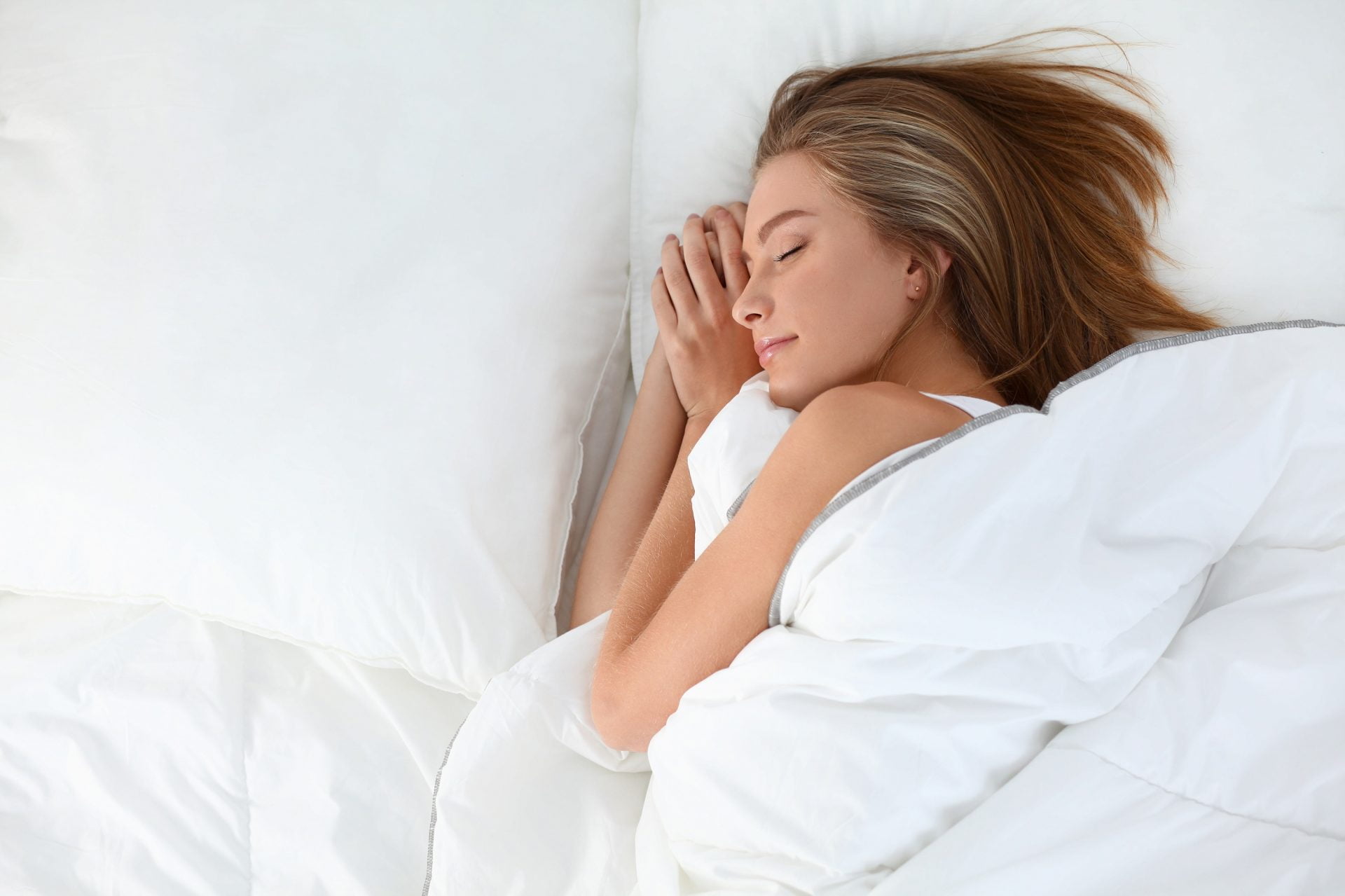
We live in a society that promotes over-scheduling and keeping up with the daily hustle; needless to say, it can be challenging to ensure that the delicate equilibrium of our lives is maintained. Aside from scheduling work and necessary errands, a balanced life should afford you time to enjoy our favourite activities, spend some quality time with friends and family, and allow ample time for rest and recovery. But, like so many things in life, regularly accomplishing this balance does not happen overnight (pun intended) – rather, establishing a suitable sleep routine requires consistent attention (and likely some trial and error) to achieve. And while taking time each day to refocus and recharge your batteries is ideal, getting a quality night sleep most nights should be a priority. Sleep is up there with the most potent lifestyle habits when it comes to improving your health, performance, and body composition. It is that important! So lets talk strategy…
While sleep hours are an outcome (which means you can’t completely control them) your pre-bed routine and sleep hygiene are behaviours (which are under your conscious control). If you aren’t sleeping enough, consider addressing your bedtime conduct; we recommend considering the following time-tested practices, sampling a few, and determining which ones work for your life:
Manage your Busy Mind
Among the MacroNutrition Coaching Team, our calendars our saving grace. Before we turn in for bed each night, we make a point to take a few minutes to ensure all our thoughts, ideas, and to-do lists are sufficiently recorded in our calendars to be taken care of the  following day(s). Out of site and out of mind, we can crawl into bed with a peaceful demeanour. We suggest that you try to write out a list of whatever is bugging you or otherwise on your mind. Whatever is buzzing around in your brain, get it out and onto paper so you can pick up the task the next day.
following day(s). Out of site and out of mind, we can crawl into bed with a peaceful demeanour. We suggest that you try to write out a list of whatever is bugging you or otherwise on your mind. Whatever is buzzing around in your brain, get it out and onto paper so you can pick up the task the next day.
Create a Stress and Clutter-free Bedroom
In addition to doing a brain dump at the end of the day, this one really works wonders at clearing your mind. To start, we suggest removing any and all unnecessary items from your bedroom that may cause you angst. This may include stacks of mail, boxes, your pet or children’s toys, and/or clothes strewn about.
 Moderate your Caffeine and Alcohol Consumption
Moderate your Caffeine and Alcohol Consumption
Whether you’re directly aware of it or just tend to suffer the consequences the next day, both substances will interfere with sleep quality. We suggest making a general rule, such as no/minimal caffeine after 4:00 pm, or not going to bed for 2-3 hours after your last caffeinated drink to promote restful sleep.
Eat and Drink Appropriately
We want your body to be working on recovering and restoring itself while you sleep, not digesting your last big meal of the day. With that in mind, we suggest having a regular smallish-sized meal about 2-3 hours before bed; one that is macronutrient balanced can help facilitate sleep. You might try creating a homemade trail mix with some of your favourite ingredients to satisfy your taste buds and that urge for late night nibbles. And if you have trouble falling back asleep once you  wake up, we suggest not drinking too much liquid in the hours before bed, which will help you avoid waking up for bathroom breaks.
wake up, we suggest not drinking too much liquid in the hours before bed, which will help you avoid waking up for bathroom breaks.
Turn off Electronics
We know this piece of advice won’t work for everyone, but as it will be critical for some, we thought to include it on this list. As you may have come to realize, digital devices stimulate our brains (yes, this is why watching just one more episode of your favourite show on Netflix is so appealing). If suitable for your lifestyle, we recommend unplugging from all devices and moving away from the luminous screens at least 30 minutes before bed (after you have finished your food logging for the day, if this is part of your lifestyle, of course). You might try having a hot bath, doing some gentle stretching, reading a calming book, or jotting thoughts down in your journal or planner in this time before bed.
Keep a fairly Regular Sleep Schedule
Try to go to bed and wake-up at roughly the same times; because what you do Sunday morning may make those Monday morning much easier. We recommend aiming to be in bed before midnight regularly to facilitate this. Waking within 1 hour of your usual time each day is manageable for most.
Sleep at Least Seven Hours
Though some people function optimally with a bit less, and some a bit more, this is a happy medium that the majority of us should aim for. To ensure this, we recommend working backwards; for example, if you need to wake-up at 6:00am, 11:00pm will be the latest you want to hit the pillow. This means you should be working your way to the bedroom by 10-10:30pm.
Keep the Room Dark
This will promote melatonin production (a hormone produced by your body that helps promote relaxation and sleep). Cover up your digital alarm clock, dim your TV PVR, and use curtains/shades or a sleep mask to block out the light.
Keep the Room at a Comfortable Temperature
Though this will vary slightly with each individual, anywhere from 15-20 Degrees Celsius (60-68 Degrees Fahrenheit) appears to work best for many at night.

Use White Noise
If you live in a busy urban environment, this tip might be just what you need to promote a restorative night sleep. To drown out those never ending conversations, hysterical laughter, and honking horns echoing from the streets, we recommend that you look to create some white noise. Examples include turning on a fan or humidifier, or an iPod loaded with soothing ambient music.
Get Outside in the Sunlight and Include Some Activity in your Day
Because being outdoors in nature tends to promote a feeling of groundedness, but also because physical movement (especially outdoors) can promote restful sleep at night.

Did you read through this list – maybe tried a few techniques out for yourself – and still have trouble turning in? You may want to consider scheduling a nap into your day, if you can make time for it in your schedule. Don’t be embarrassed to nap. Embrace the opportunity. And use it to your advantage. It may be just what your body needs.
Good sleep is crucial for good health. You may find that sleep is the missing element in your healthy lifestyle — it quite possibly could bring back your energy and vibrancy while helping you reach your body, performance, and health goals faster. Make good sleep a priority. Your physical, mental, and emotional wellbeing will thank you.
Suggested Resources for Further Reading:



